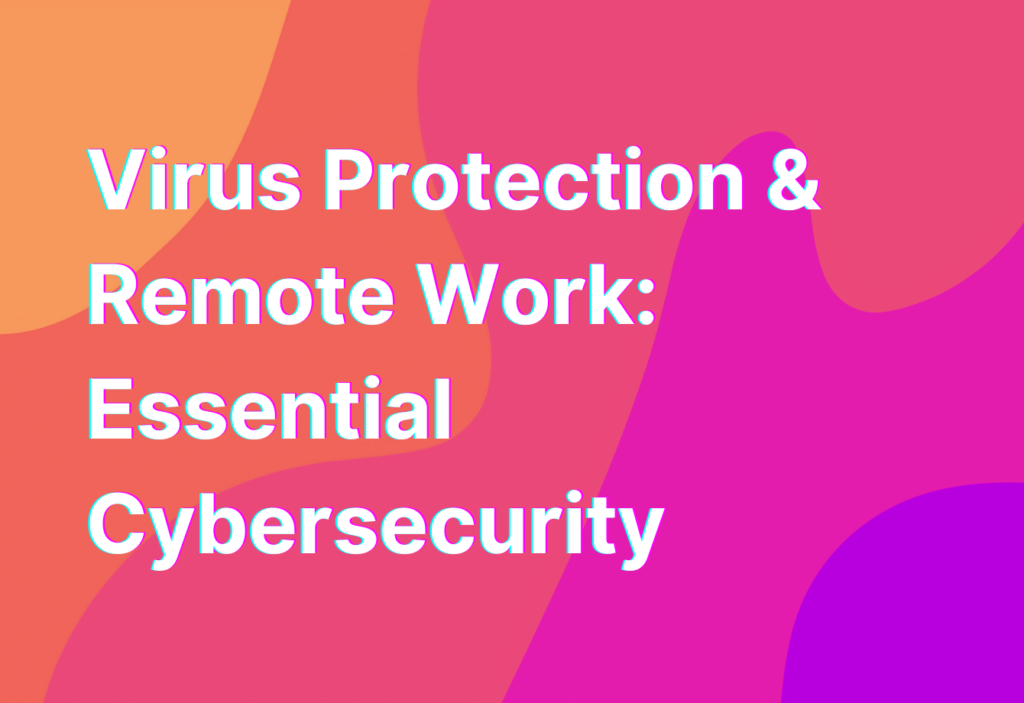Virus Protection & Remote Work: Essential Cybersecurity
Hey there, remote workers! It’s Ashley, your friendly remote work advocate, here to talk about a topic that’s crucial for all of us: virus protection and cybersecurity. In this digital age, where remote work is becoming the norm, it’s more important than ever to ensure the safety of our devices and data. So, let’s dive in and explore some essential tips and tricks to keep those pesky viruses at bay!
1. Keep Your Software Updated
First things first, make sure you’re always running the latest software updates on your devices. Whether it’s your operating system, antivirus software, or any other applications you use, keeping them up to date is key to staying protected. These updates often include important security patches that fix vulnerabilities and protect against new threats.
Pro tip: Set your devices to automatically install updates so you don’t have to worry about manually checking for them. Trust me, it’s a game-changer!
2. Use a Reliable Antivirus Software
Speaking of antivirus software, it’s essential to have a reliable one installed on your devices. This software acts as a shield, scanning for and removing any malicious software that may try to sneak its way onto your system. There are plenty of great options out there, such as Avast, Norton, and McAfee. Do your research and choose one that suits your needs.
Remember, having antivirus software is like having a superhero by your side, protecting you from the evil viruses lurking in the digital world!
3. Be Wary of Phishing Attempts
Phishing is a sneaky tactic used by cybercriminals to trick you into revealing sensitive information, such as passwords or credit card details. These scammers often pose as legitimate organizations or individuals, sending you emails or messages that seem genuine. But fear not, my fellow remote workers, for I have some tips to help you spot these phishing attempts:
- Check the sender’s email address. If it looks suspicious or unfamiliar, proceed with caution.
- Hover over links before clicking on them to see the actual URL. If it doesn’t match the text or seems fishy, don’t click!
- Look out for poor grammar or spelling mistakes in the message. Cybercriminals aren’t always the best spellers, it seems.
- Be skeptical of urgent requests for personal information. Legitimate organizations usually won’t ask for sensitive data out of the blue.
- If in doubt, contact the organization directly through their official website or phone number to verify the authenticity of the message.
Remember, my friends, a healthy dose of skepticism can go a long way in protecting yourself from phishing attacks!
4. Secure Your Home Network
Working remotely often means relying on your home network for internet access. To ensure the security of your data, it’s important to take some steps to secure your home network:
- Change the default password on your router to something strong and unique. Avoid using common passwords like “password123”. Let’s be a little more creative, shall we?
- Enable network encryption, such as WPA2, to protect your Wi-Fi network from unauthorized access.
- Consider setting up a guest network for visitors, keeping your work devices separate from their potentially infected devices.
- Regularly check for firmware updates for your router and install them to ensure you have the latest security patches.
By taking these simple steps, you can create a fortress around your home network, keeping those cyber intruders at bay!
5. Backup Your Data
Accidents happen, my friends. Devices can get lost, stolen, or infected with nasty viruses. That’s why it’s crucial to regularly backup your important data. Whether it’s using cloud storage services like Google Drive or Dropbox, or an external hard drive, having a backup ensures that even if the worst happens, you won’t lose all your precious files.
Pro tip: Set up automatic backups so you don’t have to remember to do it manually. Trust me, future you will thank you!
Wrapping Up
Well, my fellow remote workers, we’ve reached the end of our cybersecurity journey. Remember, virus protection is not something to be taken lightly, especially in the world of remote work. By following these essential tips, you can keep your devices and data safe from those pesky viruses.
And hey, if you want to dive deeper into the world of cybersecurity, be sure to check out this Web application firewall article on our blog. It’s packed with even more valuable information to help you stay secure in your remote work adventures!
Until next time, stay safe, stay secure, and keep rocking that remote work life!


